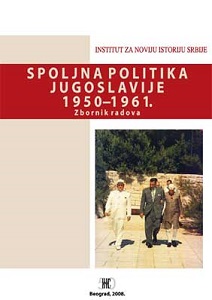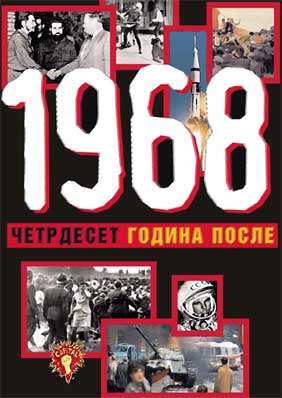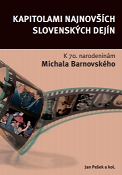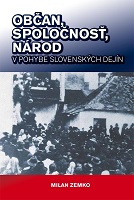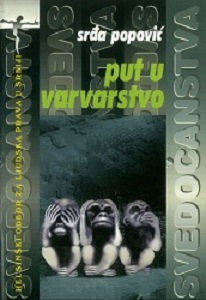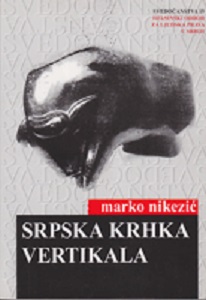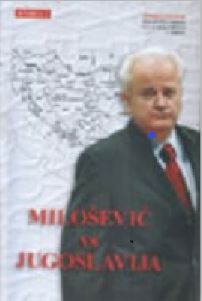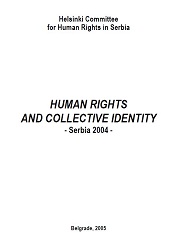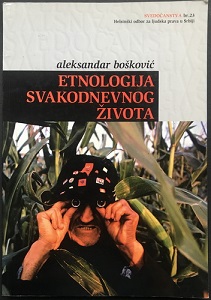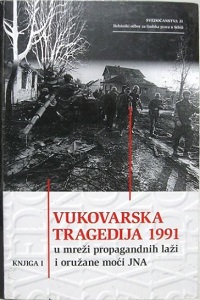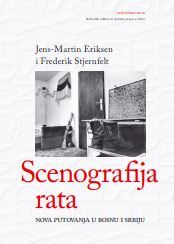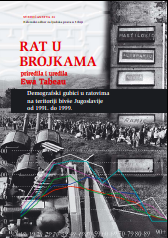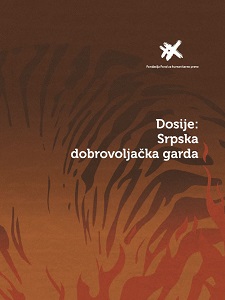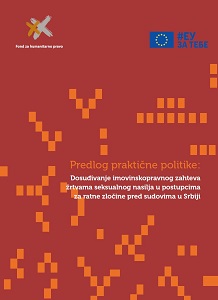Author(s): / Language(s): Slovak,English,Czech
During and after World War II, Slovakia underwent massive political, economic, social and state constitutional changes. Being the part of the international events of the “hot” and Cold War, it had been brand marked by the two nondemocratic, totalitarian regimes – fascist and communist. After the Slovak Republic, which was in 1939 – 1945 a satellite state of the Nazi Germany, Slovakia became a part of the reconstructed Czechoslovak Republic with its specific system of “the limited democracy”. The communist coup d’état in February 1948 had brought the country under the rule of another totalitarian regime, spreading from Moscow to all states of the Soviet block. Though, the Czechoslovak society in 1968 tried to reform the communist system, it was unsuccessful in the same way as some other Soviet block countries, which also attempted to disengage the chains of the Soviet imposed regime. This period of the modern Slovak history has been – mainly after 1989 – a subject of numerous studies. Nevertheless, it is still researched only partially, some problems more other less. At the most is missing the synthesis of the contemporary history of Slovakia. The Institute of History of SAS is trying to fill this gape with a project Slovakia in the 20th century granted by the state Agency for Support of Science and Research. The part of this project will be the collective monograph (as the volume V) dealing with the history of Slovakia in 1945 – 1968, and its authors plan for the future also the next, sixth, volume of this synthesis. The book Chapters from the Slovak Contemporary History, which now the reader has in his hands, is also aimed at the presentation of some key or important problems of the Slovak war and postwar history. But it is not the only goal. The publication is also a tribute to the 70. life jubilee of an outstanding Slovak historian Michal Barnovský. His forty-five years of scientific career in the Institute of History have enriched the Slovak historiography in the field of the contemporary Slovak history. In which researched themes and to what extend, the reader may find in the introductory article and in the selected bibliography of Dr. Barnovský. The book begins with chapters showing the multiplicity of the history of the Slovakia and the Slovak question during World War II. The first one (author Jozef Bystrický) describes the role, which the Slovak army played in the plans of the Czechoslovak Ministry of National Defense (MND) in London in 1943 – 1944. Various documents, especially the Directives from 1943, enclosed the views of the London exile, how to engage the army of the Slovak state in the rising against its regime and in military resistance against the Nazi Germany. Though, the Military Headquarters in Slovakia preparing and then in August 1944 realizing the uprising had had to take in account the specific situation on the Slovak territory at the given moment, the MND instructions and directives influenced highly positive the contents, character and the quality of the military-technical arrangements for the rising. The second chapter of this Slovak state points at issue deals with the specific phenomenon of the regime propaganda. In this connection the author Marína Zavacká analyses a Slovak state journal Vĺča (The Young Wolf) for boys of age between 6 and 10, members of Wolf corps of the Hlinka’s Youth organization. It served as a regime-sponsored source of officially approved children’s role-models, including patterns of deeds to be followed. The study summarizes different propagandist vehicles used for making up heroic stories, ranging from social sacrifice to the sacrifice of life. Following four chapters concentrate on several important problems during the period of “the limited democracy”. One of the crucial questions of those times was the position of the Slovakia in the newly reconstructed republic and the search for the model of the future co-existence of the Czechs and Slovaks. Marek Syrný in his text examines this complicated problem from the point of view Democratic Party (DP), which arouse from the Slovak National Uprising as the strongest noncommunist political subject in Slovakia. The idea of its leaders was the Czechoslovakia as de facto federal state. The decline of this DP plans was pronounced in the course of discussions to the three Prague agreements, which had been till February 1948 more and more influenced by the struggle for power between democrats and communists. The next chapter by Slavomír Michálek shows one of the key problems of this period in the sphere of the foreign policy: the aims and the activities of the Czechoslovak delegation at the Paris Peace Conference 1946, which were concentrated on the preparation of the treaty with Hungary. Beside the participation of the two leading figures of the delegation – Jan Masaryk and Vladimír Clementis – the author follows especially Juraj Slávik. Slovak born Slávik, who during his professional life belonged to the influential personalities of the Czechoslovak policy and diplomacy, participated at the finalizing the peace treaty texts regarding Hungary. Although the Slovaks felt the Hungarian problem as the most important for them, there had been another national community in Slovakia which postwar destiny radically changed. The German minority had been evacuated by German authorities, before the Red Army had crossed the Slovak borders (the chapter written by Milan Olejník). After the war had ended many of the Germans returned home, but there they fell under the decrees of President Beneš. Due to them they lost the Czechoslovak citizenship, underwent political, economic and social discrimination and 32-tousand of them were expelled. In 1948 to the rest of them the citizenship was returned, but the minority rights they have been lacking until 1989. The last chapter covering the period 1945 – 1948 belongs to the commentated document in which the French Consul General in Bratislava E. M. Manac’h informs his government about the key political phenomena in Slovakia during the Czechoslovak crisis in February 1948. The commentator of the material – published in Slovak translation and in French original – Pavol Petruf stresses, that E. M. Manac’h stated that the events between 21 and 27 February 1948 had shown the communists, in comparison to their democratic opponents, as better prepared for solving the batte for power. Couple of problems connected with the the communist coup d’état in February 1948 are the subject of another chapters. Miroslav Londák in his text analyses the changes of the economy system in Czechoslovakia and Slovakia, which had taken place in the first, “founding” period of the new regime. They resulted into the socalled socialist economy, based almost entirely upon the state ownership and directed by the centrally composed five years plans. The author also points out the specifics of the development in Slovakia and the determinants of its socialist industrialization. Another sector of economy – the agrarian one, is the topic of the chapter written by Viera Hlavová. The strategy of the communists immediately after the war was to get peasants on their side and therefore they had rejected the cooperatives of the Soviet type. But after the February 1948 the primary task became to re-orient the small agrarian production to the large-scale socialist one, to form state agricultural enterprises and, in the same time, to fight the “capitalist elements” in the country. The village had been transformed according to the Soviet mode, without respecting the specifics of the Czechoslovak and Slovak agriculture. The same regime changes as upon the Slovaks, dropped down upon the members of the Hungarian minority. In addition to it – as Soňa Gabzdilová-Olejníková states – immediately after the coup d’état the exchange of the inhabitants between Czechoslovakia and Hungary continued, the plans were made for the second stage of re-Slovakization and there was no hope for in the Czech lands deported Hungarians to return back to Slovakia. In this respect the situation changed with incorporation of the principles of so-called proletarian internationalism into the mutual relations between the communist parties of Hungary and Czechoslovakia. The communist coup d’état influenced also the Slovak postwar emigration, which had been concentrated at the free and independent Slovakia. As Karel Kaplan in his chapter analyses, this Slovak exile was for a long time devided, but after the February 1948 Karol Sidor – one of the leading figures of the Slovak autonomist émigrés – successfully formed the Slovak National Council Abroad, the umbrella organization of the Slovak political exile. The direct influence of the exile states in his text also Vladimír Varinský, who surveys the formation of The White Legion organizations in Slovakia. Although it was possible, that some of these organizations provoked the State Security, the newest research shows that the main cause of their secret existence and activities was a spontaneous resistance of the people against the practices of a new regime. And the reaction of the communist establishment was persecutions. The most brutal form of them had been the framed political trials and the two of them from the beginning of the 50ties depicts in his chapter Jozef Leikert. Based upon the archival research, but mostly upon oral testimony he analyses them from the point of view of their insider, journalist and writer Ladislav Mňačko. He witnessed these trials as the daily news Pravda journalist and influenced the public in accordance with the regime propaganda. But later on he came round to realize its fabricated character and confessed his part of guilt. In the shadow of the “founding” period of the communist system with its totalitarian practices and persecutions stays the sometimes natural development – though politically and ideologically distorted – of various phenomena in the Slovak society. One of them, the development of the Slovak science from its half-amateur stage to internationally accepted partner, shows in her chapter Elena Londáková. She concentrates on the Slovak Academy of Sciences, but deals also with the complex of the state and party policy towards the science and its various branches. On the outside and from the point of view of communist leaders the “founding” period represented a successful establishing of the communist system. But already in this time there were the signs of the crisis, which is immanent to this type of regime. Jiří Pernes in his text summarizes the various opinions regarding its beginnings. Unlike Karel Kaplan, who talks about the crisis in 1953 – 1957, Pernes inclines to take in account deeper tokens of it, which perhaps started the crisis development already in the early 50ties. With the chapter of Václav Vondrášek the themes of the publication move chronologically to the history of the 60ties. He surveys the activities of the Hlinka’s Peoples Party exile at the turn of 50ties and 60ties and the countermeasures of the communist establishment in Slovakia. The efforts to unify this exile abroad, watched the communist regime in Czechoslovakia with suspicion. As the reaction, the State Security activities towards the potential followers of this exile branch started to intensify. So much more that in connection with the further restriction of power of the Slovak national institutions and worsening of the economic situation the discontent in Slovakia had grown. This special Slovak national discontent created also one of the differences in perception of the “Prague Spring” in the Czech and Slovak societies. As the author of this chapter, Stanislav Sikora states, during the attempt to reform the Soviet type of socialism in 1968, both state building nations in Czechoslovakia had their own conceptions of the democratization process. While in the Czech lands the priority was the general democratization of the political system, Slovaks felt it as the opportunity for the further national emancipation. But the newest studies also show that also the Slovak society was more diversified than this traditional characteristic says. The next chapter of the book treats the staffing transgression of the communist regime into the activities of the Slovak Evangelic Church of the Augsburg Confession in 1948 – 1989. Jan Pešek in his text analyses the communist regime attempts to rule over all spheres of the society, including the churches. In the case of Slovak Evangelic Church of the Augsburg Confession the establishment used the traditional election of all church and laic authorities for its own purposes. With various practices influenced the elections to the benefit of persons, willing to cooperate with the regime. In this way the ability of the Evangelic Church of the Augsburg Confession to resist the pressure of the communist system had been markedly weakened. Also the following chapter treats a specific issue. Jan Rychlík surveys the travel relations between Czechoslovakia and Poland in 1980 – 1989. The point is that in connection with the strikes in Poland and forming the independent trade union Solidarity, the Czechoslovak authorities started to be afraid of the free travel possibilities between two countries. There were two causes for this fear: political and economic. The author very precisely documents the official measures and economic circumstances, which for more than a decade regulated the travel transfer between the Czechoslovakia and Poland. The last chapter of the book by Juraj Marušiak bridges the history and contemporary development. It is an analysis of the perception of the past by the Slovak society and of its influence on the development after the November 1989. The author concentrates on the perception of the two totalitarian regimes – that of the war Slovak state and of the communist period. He comes to conclusion that in the Slovakia the roots of democratic tradition are not strong enough, which should be the result of the political system before 1918. Both totalitarian regimes of the 20th century used these behavior patterns of the population and on the other hand a great part of the people identified themselves with these regimes.
More...
